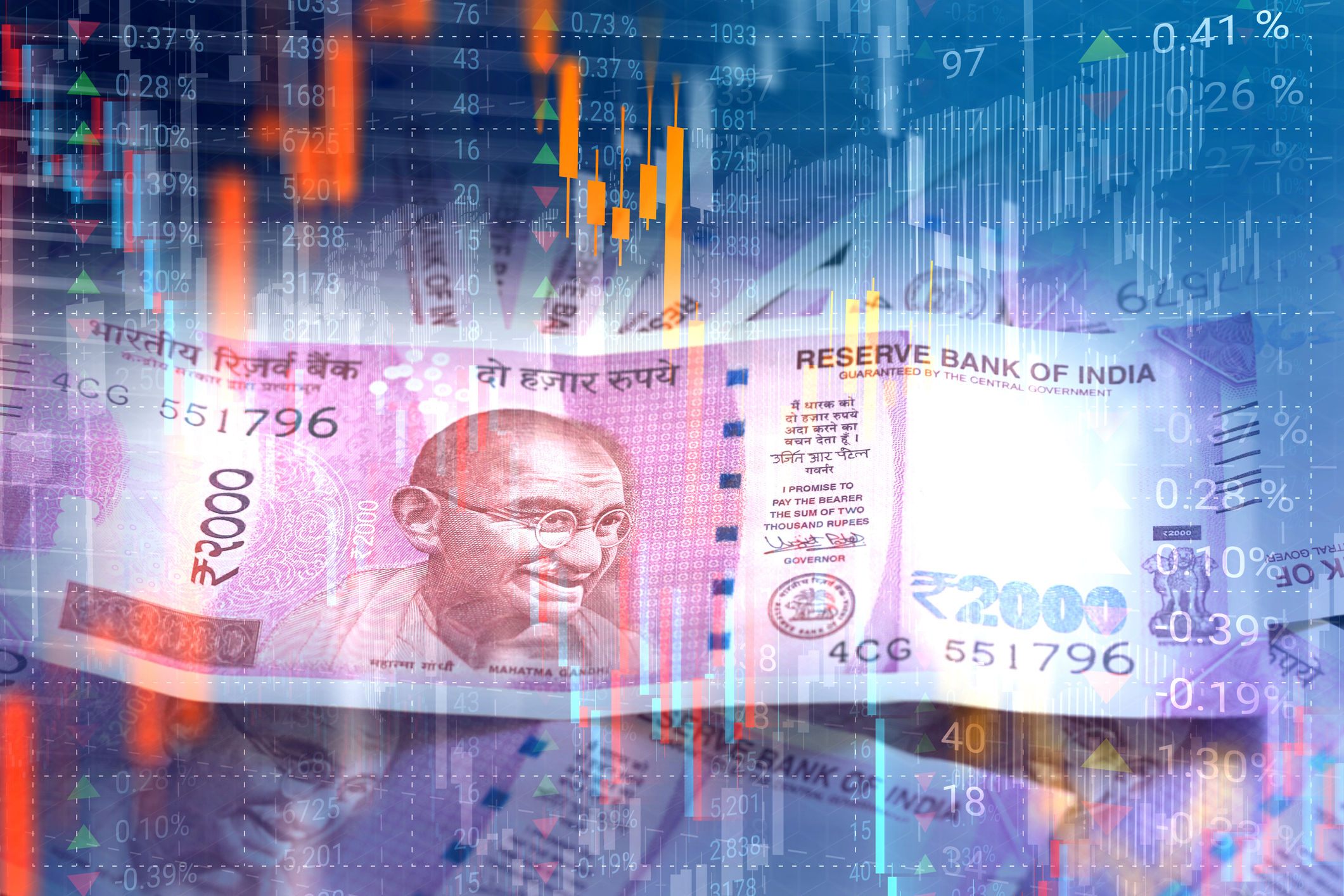India’s vanishing economy
With Prime Minister Narendra Modi having imposed one of the world’s toughest lockdowns, India's latest economic data is shocking.

Get the latest financial news, insights and expert analysis from our award-winning MoneyWeek team, to help you understand what really matters when it comes to your finances.
You are now subscribed
Your newsletter sign-up was successful
Want to add more newsletters?

Twice daily
MoneyWeek
Get the latest financial news, insights and expert analysis from our award-winning MoneyWeek team, to help you understand what really matters when it comes to your finances.

Four times a week
Look After My Bills
Sign up to our free money-saving newsletter, filled with the latest news and expert advice to help you find the best tips and deals for managing your bills. Start saving today!
India faces a terrible choice, says Sadanand Dhume in The Wall Street Journal. Most countries are grappling with a trade-off between “lives and livelihoods”, but in an economy where more than 80% of people live on less than $5.50 a day, lockdowns are proving an unaffordable luxury.
Prime Minister Narendra Modi imposed one of the world’s toughest lockdowns on 25 March. Curbs have been eased recently, yet infections have not peaked and a lack of testing hardly helps: as of 30 April New York state had tested more people for Covid-19 than the whole of India.
Economic carnage
The economic data for April is “shocking”, writes Freya Beamish of Capital Economics. The services purchasing managers’ index (PMI) plunged to just 5.4 last month (readings below 50 imply contraction), a level that implies that the sector, worth half of GDP, “effectively vanished”. The nadir of China’s equivalent gauge was 26.5. GDP is set to fall 20% year-on-year in the second quarter.
MoneyWeek
Subscribe to MoneyWeek today and get your first six magazine issues absolutely FREE

Sign up to Money Morning
Don't miss the latest investment and personal finances news, market analysis, plus money-saving tips with our free twice-daily newsletter
Don't miss the latest investment and personal finances news, market analysis, plus money-saving tips with our free twice-daily newsletter
Developed countries have served up massive fiscal support to cushion the blow of lockdowns, notes the Financial Times. Until this week India’s support package had amounted to a measly 1.1% of GDP. Some economists say India needs stimulus of at least 5% to mitigate the worst economic and social effects of the pandemic; this week, Modi promised them 10%.
The figure has surprised investors, given that government debt has already reached a comparatively high 70% of GDP. This could “[put] India’s investment-grade sovereign credit rating on the line”, says Una Galani on Breakingviews. “In normal times,” that could unnerve global investors and prompt them to withdraw money from the economy.
But India has a record of being able to embrace tough structural reforms, which bolster long-term growth, in a crisis – witness its embrace of market forces during the balance-of-payments drama of 1991. Modi’s “rare outright parliamentary majority” bodes well this time. There is plenty to do, says The Times of India. The Covid-19 lockdown has empowered bureaucrats, stoking fears of a return to the bad old days of the heavily regulated “licence raj”.
The torrid backdrop has wiped a quarter off the BSE Sensex index this year. The market still trades on a relatively elevated cyclically-adjusted price/earnings ratio of 18.2, but, as Craig Mellow notes in Barron’s, India is usually the priciest major emerging market and valuations have come down.
The risk-tolerant think that this might be an opportunity to buy into the long-term growth of an economy where half of the population is under 25 at a comparative bargain. “Don’t count the country out.”
Get the latest financial news, insights and expert analysis from our award-winning MoneyWeek team, to help you understand what really matters when it comes to your finances.
Alex is an investment writer who has been contributing to MoneyWeek since 2015. He has been the magazine’s markets editor since 2019.
Alex has a passion for demystifying the often arcane world of finance for a general readership. While financial media tends to focus compulsively on the latest trend, the best opportunities can lie forgotten elsewhere.
He is especially interested in European equities – where his fluent French helps him to cover the continent’s largest bourse – and emerging markets, where his experience living in Beijing, and conversational Chinese, prove useful.
Hailing from Leeds, he studied Philosophy, Politics and Economics at the University of Oxford. He also holds a Master of Public Health from the University of Manchester.
-
 Should you buy an active ETF?
Should you buy an active ETF?ETFs are often mischaracterised as passive products, but they can be a convenient way to add active management to your portfolio
-
 Power up your pension before 5 April – easy ways to save before the tax year end
Power up your pension before 5 April – easy ways to save before the tax year endWith the end of the tax year looming, pension savers currently have a window to review and maximise what’s going into their retirement funds – we look at how
-
 Modi’s reforms set Indian stocks on fire
Modi’s reforms set Indian stocks on fireIndian stocks pass a new milestone, but global fund managers are holding back. Are there signs of overheating?
-
 Halifax: House price slump continues as prices slide for the sixth consecutive month
Halifax: House price slump continues as prices slide for the sixth consecutive monthUK house prices fell again in September as buyers returned, but the slowdown was not as fast as anticipated, latest Halifax data shows. Where are house prices falling the most?
-
 Rents hit a record high - but is the opportunity for buy-to-let investors still strong?
Rents hit a record high - but is the opportunity for buy-to-let investors still strong?UK rent prices have hit a record high with the average hitting over £1,200 a month says Rightmove. Are there still opportunities in buy-to-let?
-
 Pension savers turn to gold investments
Pension savers turn to gold investmentsInvestors are racing to buy gold to protect their pensions from a stock market correction and high inflation, experts say
-
 Where to find the best returns from student accommodation
Where to find the best returns from student accommodationStudent accommodation can be a lucrative investment if you know where to look.
-
 The world’s best bargain stocks
The world’s best bargain stocksSearching for bargain stocks with Alec Cutler of the Orbis Global Balanced Fund, who tells Andrew Van Sickle which sectors are being overlooked.
-
 Revealed: the cheapest cities to own a home in Britain
Revealed: the cheapest cities to own a home in BritainNew research reveals the cheapest cities to own a home, taking account of mortgage payments, utility bills and council tax
-
 UK recession: How to protect your portfolio
UK recession: How to protect your portfolioAs the UK recession is confirmed, we look at ways to protect your wealth.